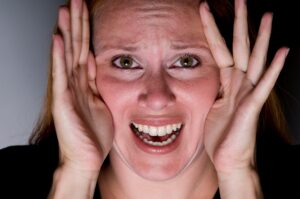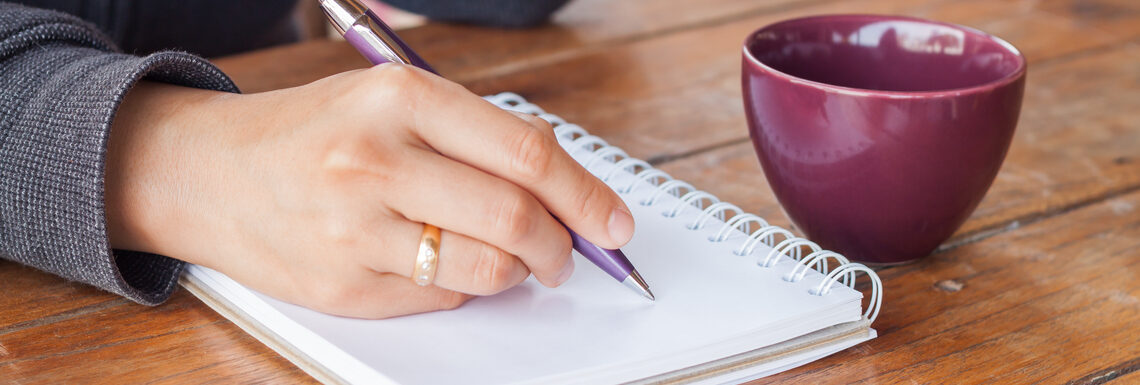When folks come to us with various fitness goals, the most common is fat loss, nutrition is an obvious issue to investigate.That investigation is best initiated with reviewing a food log. The reasons why are many. Some more obvious, some less obvious:

Top Reasons Why You Need to Do a Food Log
1. It works. A study by Hollis, et al (American Journal of Preventive Medicine Aug 2008) showed that those who kept a food log lost twice as much weight as those who did not. Another study by McTeirnan, et al (Journal of the Academy of Nutrition and Dietetics July 2013) showed that women who kept a food log lost 6 more pounds than those who did not. Our experience in the studio shows the same. It flat out works!
2. Mindfulness. Research by Brian Wasnick at Cornell shows a common trend that many of our food choices are influenced by factors that we are not aware of. The act of writing a food log makes us more aware of the choices we are making.
3. Accountability. Studies repeatedly prove that those who have to report on their progress to a coach on a weekly basis are more successful. Knowing that someone will be looking at your food log has a strong effect on your choices.
4. Diagnostic. A food log can diagnose the specific problem affecting food choices: knowledge, convenience, hunger, emotional eating, environment and social influences. Many other factors can also affect how you eat. Figuring out which issues are impacting your nutrition choices is reduced to random guessing without a food log.
So clearly doing a food log is essential if you want to change your nutrition behavior. But so few do a food log, and ones that do rarely do it consistently. Why is that?
Fearing the Food Log: Why Won’t You Do It?

There are many reasons why people won’t do a food log, but they aren’t the usual suspects. It’s not time (take a few minutes max), it’s not money (none required), it’s not hard to do (couldn’t be easier). So what gives?
1. Fear of Shame. People don’t like to be made to feel bad, especially about their food choices. They often feel bad enough about their weight issues or their appearance, so the last thing they want is for someone else to make them feel worse after seeing their food log. Unfortunately, this is exactly what some professionals do, but research and my experience clearly show this doesn’t work.
2. Exposing Your Crutch. We don’t like to reveal our vulnerabilities. After doing a food log, it can be clear to a trained eye that we are using food as a “drug” or a “crutch” to make us feel better when we are upset or sad. Some don’t want to be exposed, but this is usually what emotional eaters need. They joy and freedom I’ve seen emotional eaters achieve from confronting this issue is profound. They become empowered and freed from the guilt.
3. Fear of Judgment. Many people think that someone who looks at their food log will judge them as ignorant, undisciplined, or lazy. It’s important to realize that food logging facilitates problem solving. IT does not provide insights into who you are or what traits you have as a person.
4. Not Appreciating the Power. Things that aren’t elaborate, sexy, or technologically advanced seem to be dismissed as a power fix for a common problem. Thankfully research provides the clear proof.
5. The Habit. Adding another procedural task of writing down what you eat can be difficult for hectic schedules. However, if you ting it into an existing habit, like keeping it next to your toothbrush so that you remember to log every time you brush your teeth as one good strategy to make logging a habit.
6. It’s insulting. Some people believe that writing down what you eat so that someone can tell you what you already know are good or bad choices is silly, and it is for most of us. As you will see in this article, food logging is more than just that.
Not Knowing How to Use the Log
Many people think that the primary purpose of the food log is for the nutritionist to educate you as to what foods you are eating are healthy or not. Of course this is one purpose, but it isn’t the one most people need. Most nutritionists are making a huge mistake of using it just for that purpose.
The real purpose of the food log is to use it so see patterns of behavior. Proper eating isn’t only about knowing what is good or bad to eat, or eating less. It’s about managing your environment, controlling hunger, seeing connections to your emotions, activity, sleep and the way you eat. It’s about convenience and about time of time and what you eat.
For example, when you are consistently eating poor choices at dinner or eating too much, the traditional approach is to tell you that you need to section your plate for smaller portions, and learn to prepare better foods.
That simply doesn’t work. It just doesn’t make sense. Frankly, it’s insulting to think that eating right is so simplistic. Instead, the proper use of the food log in this case is to show the pattern that, when there is a long space between meals, most people’s hormones will trigger intense hunger cravings, making the likelihood of patiently preparing and selecting good food options less, let alone keeping portions down. So the solution is to offer ideas for a quick, fulfilling healthy snack that can be used a couple hours before dinner.
Or – Take the scenario of a food log that reveals late night snacking. Rather that suggesting healthier options, try looking at the content of dinner. Did it involve enough healthy nutrients to keep you satiated? If it did, than perhaps this is mindless eating…eating out of habit to fulfill a psychological need. A solution in this case is to look at the environment. Where are you, who are you with, and what are you doing when you have this snack? Let’s say you are at home on your couch with your wife watching TV when you have your bowl of ice cream every night. Instead of saying “stop eating ice cream” try going to bed earlier, watching TV in a different room or reading a book instead, or writing a letter to your wife asking her not to buy ice cream and keep it in the house, and to help you in changing your nightly routine that is associated with that behavior of eating ice cream.
A proper food log analysis is not about making you feel bad and judging you, and it’s more than showing you what good and bad food choices are.
It is an invaluable tool that shows how your food choices are related to more than just knowledge and will power, but your environment, your physiology, convenience, and a host of other factors that can only be seen if the data and patterns are available in the form a of a food log.
What Type of Food Log is Best?
High tech or low tech? I see both work, but go with whatever works for you. The only reason paper and pen has an advantage is because it’s simple and usually easier for a nutritionist to review. However, for those who have a smart phone or computer with them for most of the day, simply putting the info in there makes the most sense. Many apps allow you to do this, and some will allow you to send that food log to your coach.
As you go, Daily, Weekly, or “Future” Log?
Some folks do best righting down what you eat immediately after you eat it. This is an advantage for assuring accuracy, facilitates mindfulness, and works best for those tracking through their smart phone. The downside is that this can be tedious and take away from the enjoyment of eating.
A Daily Food Log
This is what I recommend for most. 24 hour food recalls are usually accurate enough, and easier to comply with as you simply need to reflect at the end of the day what you’ve eaten.
Some have used a weekly food log, but these are widely inaccurate, and lose the advantage of being more mindful about what you are eating.
Finally, and interesting option that some have had success wit is what I call a Future log. This option involves righting out exactly what you will eat for the day the night before. This can be very effective for those who simply don’t want the stress of making a decision in the moment, when stress or circumstance can affect a proper choice. Also, since the menu is already pre-written, you will have to make a conscious choice not to eat what is on the log which goes against our natural tendency to choose the default option presented to us. One disadvantage however is that it is fairly rigid.
Biggest Food Log Mistakes
So you are convinced that it’s time to do the food log, but you won’t see the proven results unless you do it right. Here’s what to do, and what not to do:
1. Do include the time, amount, and obviously content of the meal. Just righting out what you eat is not enough. When you eat and the amount reveals critical information.
2. Don’t leave out the bad stuff. Yes, write down the beers, cake, and candy you had. You need to see how this impacts your overall eating pattern. Some lament the fact that they ate a doughnut, but when they look at their 2 week food log, and that was the only sugary thing they ate in 2 weeks, it’s probably not the biggest thing to focus on. On the other hand, that one scoop of ice cream and small latte you have everyday might actually be a big problem in adding calories and sabotaging fat loss goals.
3. Don’t stop doing your food log when you have a bad day. Write it down! This will help identify if it’s really that bad of a day or not, or help identify the circumstance surrounding the bad day, and come up with strategies and solutions.
4. Don’t keep it to yourself. Food logs are only effective if someone else can see it. Studies have shown that reporting on your goals to an outside source can increase your effectiveness in reaching your goals by 33% versus just writing it down.
If you need to change your nutrition to hit your goals, start your food log today, and get it analyzed so you can address effective solutions that go way beyond “eat this not that” and ineffective “shaming strategies” Click here if you need some help from a coach!

